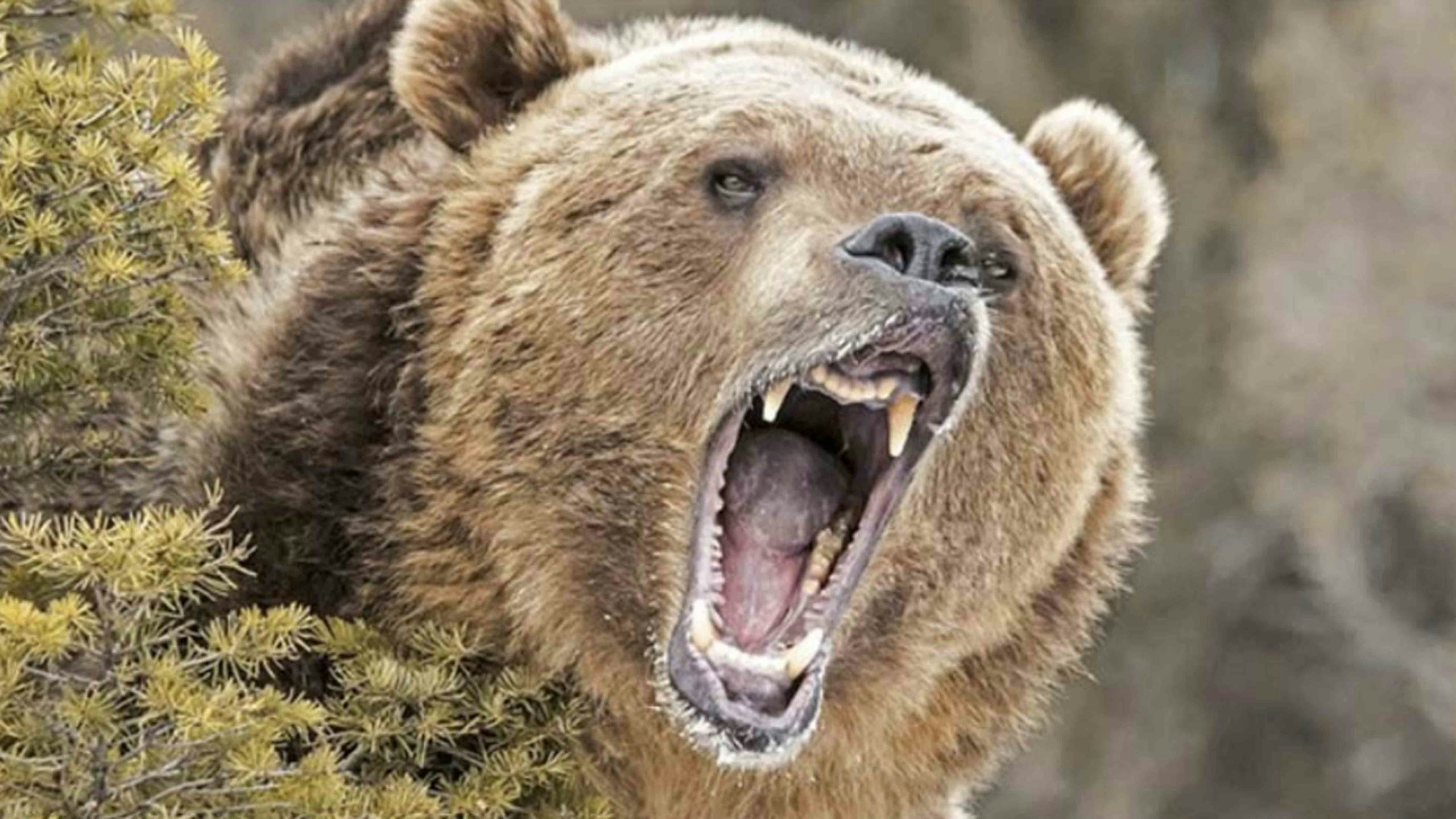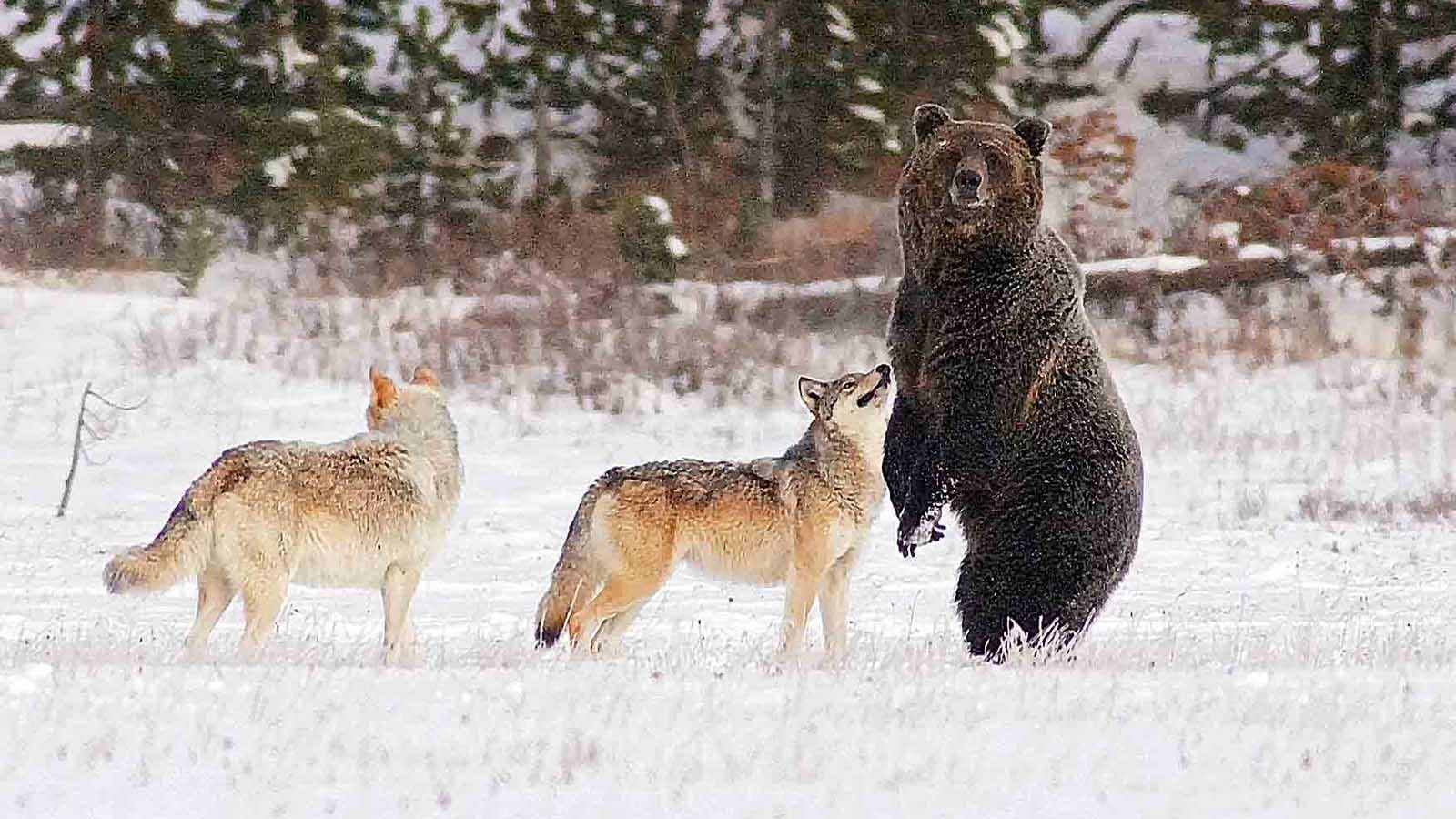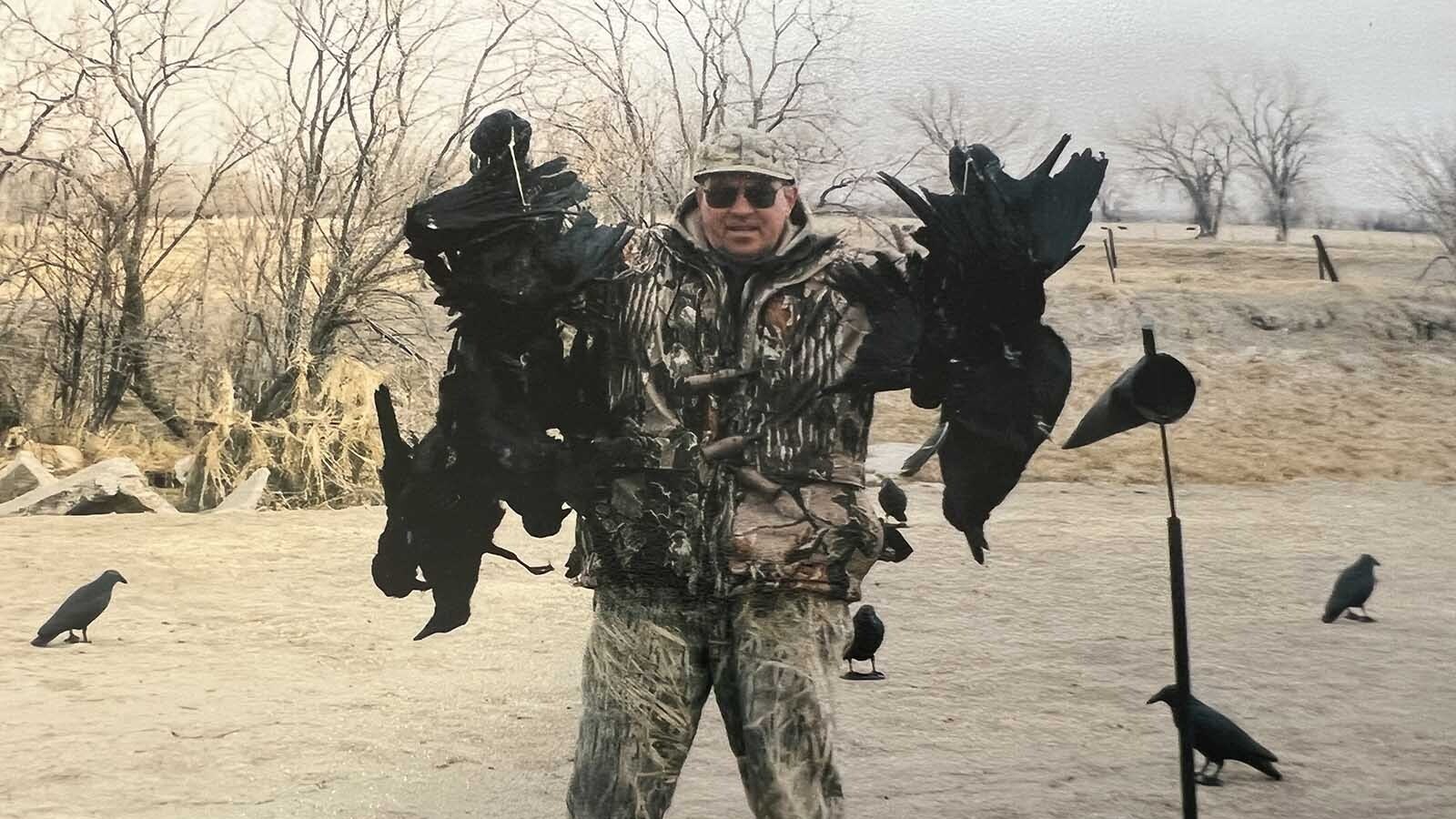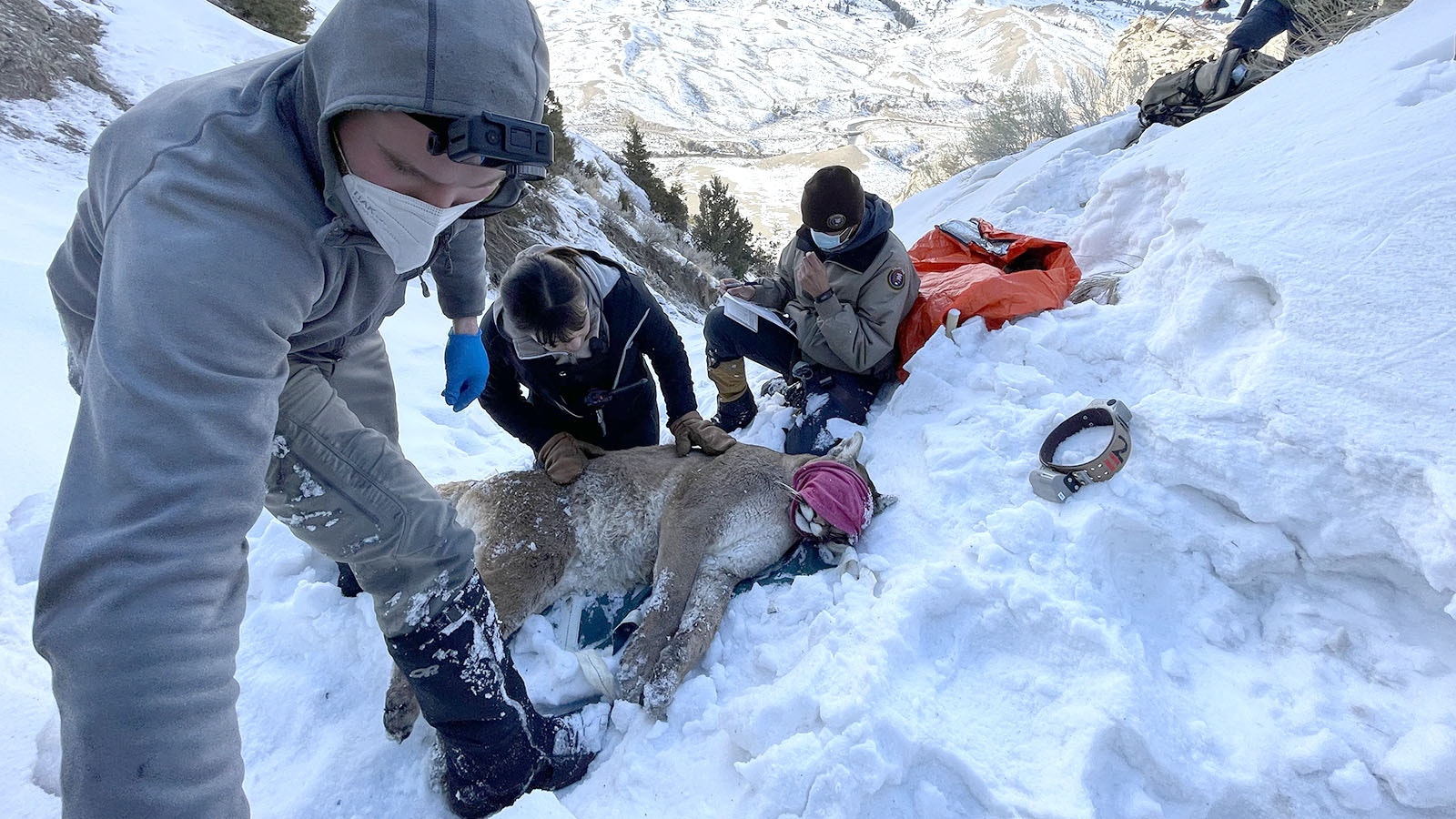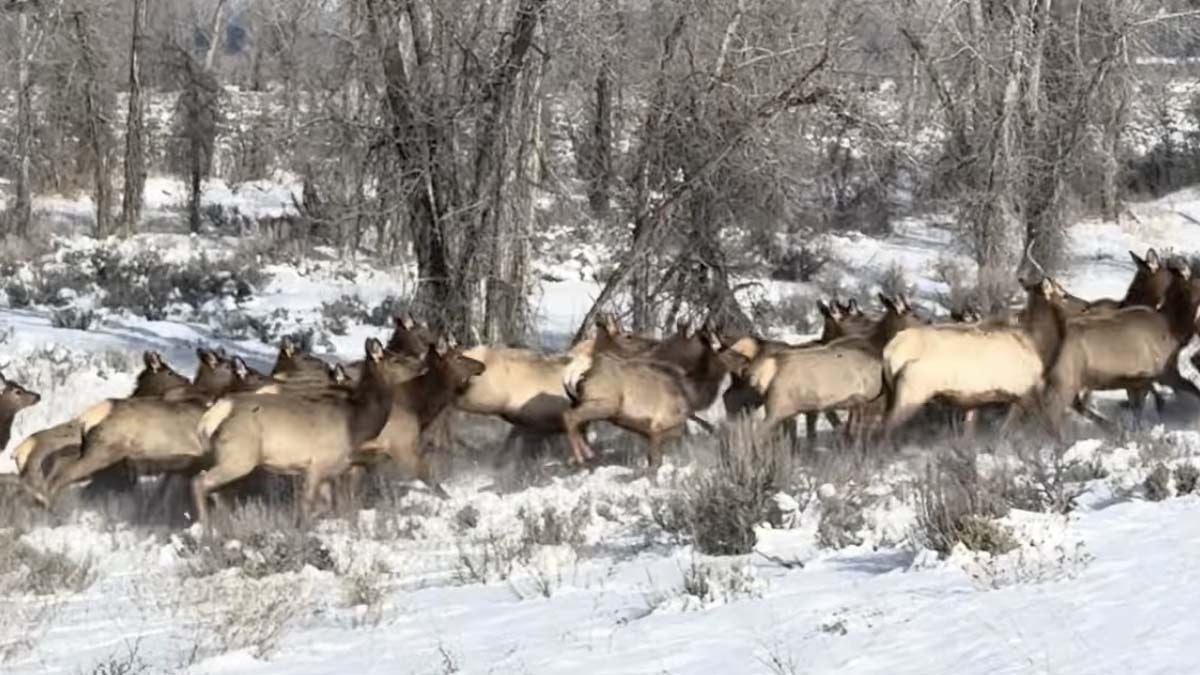Wyoming needs a grizzly bear hunting season to promote human safety and bear conservation.
That’s the message from Cowboy State outdoorsmen who say responsible hunting of the bruins is good wildlife management.
Wyoming Grizzly hunting is two decades overdue, said retired forester and longtime sportsman Karl Brauneis of Lander in a Friday email to Cowboy State Daily.
“I testified in front of the Wyoming Wildlife Commission that the grizzly was recovered about 20 years ago and that we should have authorized a hunting season at that time,” he said.
The situation also has led to bears being less wary of encroaching on humans and more populated areas, another outdoorsman said. That can make bears fearless and aggressive toward people.
“The Wyoming grizzly bear is not conditioned to know that there’s anything else out there it needs to be cautious about,” Josh Coursey told Cowboy State Daily on Friday.
Coursey is an experienced hunter who lives about 20 miles north of Kemmerer near the Wyoming Mountain Range. He said he and others have been seeing grizzlies and grizzly sign in those mountains the past couple of years.
That’s an area “well to the south” of the bruins’ established Wyoming habitat, he said.
Coursey is co-founder, president and CEO of Muley Fanatics, a mule deer conservation group. He’s also a member of the Wyoming Wildlife Task Force, a group charged with making recommendations to the Wyoming Game and Fish Commission, which sets Game and Fish Policy.
Earlier this year, the task force voted “unanimously” to recommend that management of grizzlies be handed over to the Game and Fish, which could set hunting seasons for them, Coursey said.
‘Unusually Aggressive’ Grizzly
Game and Fish on Thursday sent out an alert that grizzlies and black bears have become more active at lower altitudes in rural areas surrounding Cody. That could increase the chances for conflict with landowners and outdoors enthusiasts.
Wardens have occasionally had to kill grizzlies because of human-bear conflicts, something not unique to Wyoming.
Montana Fish, Wildlife and Parks wardens on Sept. 21 killed an “unusually aggressive” grizzly, according to a report posted online by the agency.
The bear was killed after it charged, struck and bit a landowner’s vehicle on a two-track farm road near Bynum, Montana.
Rifle Shots Are ‘Dinner Bells’ For Grizzlies
Grizzlies in the Greater Yellowstone Ecosystem in Wyoming, Montana and Idaho remain under the protection of federal Endangered Species Act.
That the species remains classified as endangered is a “travesty,” Coursey said. He said he thinks the state Game and Fish Department is far better qualified to manage the bruins.
Coursey recently returned from a successful elk hunt in the Wind River Mountains. He and his hunting partner saw black bears, but no grizzlies. Even so, whenever in grizzly country hunters need to be aware and cautious, he said.
“When you get back from a hunt, you need to hang your meat up on a meat pole well away from where you’ve set up your camp,” he said.
Especially in northwestern Wyoming, the potential for conflict between grizzlies and hunters is a constant and growing threat, he said.
“When you kill something right at dusk, you might have to leave the carcass hanging overnight,” he said. “When you arrive back in the morning there may be grizzlies feasting on your kill. That gunshot became a dinner bell for them.”
Coursey said he’s optimistic Wyoming will eventually get a grizzly hunting season, and he would “absolutely” like to hunt the bears if and when that happens.
‘Ecological Dead End’
Keeping grizzlies perpetually under ESA protection amounts to “single-species management” instead of considering the entire ecosystem, Brauneis said.
“As a forester I am convinced that single-species management, if prolonged, ends in the detriment of the entire ecosystem that species resides in,” he said. “Aldo Leopold first recognized this fact over a century ago in the management of deer herds. Single species management is an ecological dead end.”
Keeping a recovering species under ESA protection should be a “short stop” along the way to state management, he said. And grizzly recovery has been successful.
Coursey agreed, saying ESA protection has long since accomplished what it needed to for Wyoming’s grizzlies, and it’s time to move on.
“The grizzly bear should be a poster child for the success of the Endangered Species Act,” he said.

